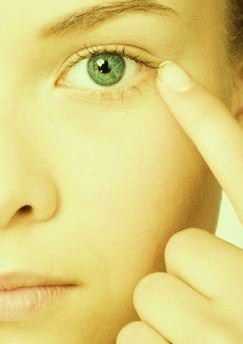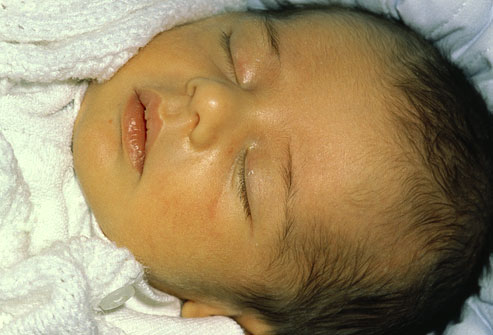What is jaundice? Having a yellowish tinge to the whites of your eye and skin is a sign that you are suffering from jaundice. Although infants are more likely to have jaundice, it is a disease that can affect anyone of any age.
The increment in the production of bilirubin is the primary reason for the occurrence of jaundice. The inability of the liver to cleanse the blood of this excessive bilirubin may result in the suffering of this disease. People with highly inflated levels of bilirubin in their blood have brownish skin and sclera, while those with moderately high levels have yellow skin.
Jaundice can also be caused due to a liver problem which stops the removal of the bilirubin from the bloodstream or because of a stoppage of bilirubin and bile flow to the intestines due to an obstruction of the bile ducts. The conversion of bilirubin to conjugated glucuronic acid and its secretion in bile are other reasons that can lead to jaundice.
Symptoms of Jaundice
Know "what is jaundice" from jaundice symptoms and get an idea about how it feels like to have jaundice.
Jaundice Symptoms in Adults
Besides yellowing of the skin and the sclerae, the other notable signs and symptoms of jaundice in adults are:
- Fatigue
- Abdominal pain (symptom of bile duct stoppage)
- Dark urine
- Weight loss
- Fever
- Vomiting
- Unusually pale stools
- Itchiness or pruritis
Jaundice Symptoms in Infants
The most obvious symptom of jaundice in infants is yellowing of the sclerae and the skin starts appearing between the second and fourth day of birth. In order to find out if your baby is suffering from jaundice or not, take him out in natural daylight and press the skin of his forehead gently. If the color of the pressed skin does not change much, then he does not have jaundice. However, if the pressed skin appears yellow, then he might be suffering from mild jaundice
Jaundice in Infants
The causes and risk factors are an important part in analyzing "what is jaundice", especially in fragile infants.
Risk Factors for Jaundice in Infants
Some babies are more at risk of developing jaundice than others for the following reasons:
- Having a family history of jaundice
- Having East-Asian ancestry
- Suffering from Hypothyroidism or Cystic Fibrosis
- Premature birth
- Having suffered bruises during birth
- Suffering from genetic disorders like Galactosemia, Gilbert’s Syndrome or inherited red blood cell membrane issues
Jaundice that occurs on the first day of a baby’s birth can also result from an infection, a gallbladder, intestinal or liver disease, Rh-incompatibility, trauma suffered during birth, blood type incompatibility and extreme prematurity.
When to See a Doctor
You must call your doctor immediately if you see any of the following symptoms in your child, since they might point towards serious complications caused by surplus bilirubin or severe jaundice.
- Yellowing of the skin becomes more significant
- Yellowing of the sclerae
- The skin of the arms, abdomen and legs becomes yellow
- The jaundice does not go away even after three weeks
- High-pitched crying
- Weight loss
- The child looks lethargic and wants to sleep all the time
The following video tells you more about jaundice in newborns:
Jaundice in Adults
Causes of Jaundice in Adults
- Cirrhosis of liver is a serious medical condition that is diagnosed after the emergence of jaundice symptoms. Caused by hepatitis C and many other factors, Cirrhosis is characterized by fluid retention, fatigue and an acute loss of appetite.
- Hepatitis A, B or C can all cause jaundice in adults. These diseases which can be contracted from contaminated water (Hepatitis A) or blood of an infected person (Hepatitis B) can present jaundice like symptoms.
- Pancreatic cancer and malaria are among those medical conditions that can lead to jaundice in adults.
- Obstruction of the bile ducts due to gallbladder stones or a tumor is a likely cause of jaundice. The obstruction stops the expulsion of bilirubin from the blood which in turn increases its amount in the body leading to jaundice.
Risk factors for Jaundice in Adults
- People with hereditary conditions like spherocytosis and thalassemia are more vulnerable to contract jaundice than others because of hemolysis.
- Heavy drinkers of alcohol are more likely to suffer from alcoholic hepatitis, cirrhosis and pancreatitis.
- Exposure to various forms of viral hepatitis such as Hepatitis B and C will increase the risk of developing jaundice.
Treatments for Jaundice in Adults
Jaundice treatment is the final and most vital part in "what is jaundice". Jaundice in infants should inform the doctor immediately and adults should take measures to get a healthy lifestyle and professional help to fight jaundice.
- Supportive care is one method of treatment prescribed for some sufferers of jaundice. The patient is kept under observation in this treatment and he does not even have to leave his home. This treatment method is usually recommended for patients suffering from mild viral hepatitis.
- Quit alcohol. Quitting the habit of alcohol is essential for treating cirrhosis, pancreatitis and alcoholic hepatitis. Unless the patient lessens his intake of alcohol, it would be impossible for him to get better.
- Stop offending agent. For medication induced jaundice, the treatment method is to discontinue the use of the agent that is responsible for causing the disease. If the patient has taken an overdose of Tylenol (acetaminophen), then he would have to be given N-acetylcysteine, the antidote for it.
- Use corresponding medications and antibiotics. Steroids and other medications would have to be used for treating the causes that lead to jaundice. Cirrhosis patients require lactulose and diuretics for treating their illness. For infectious forms of jaundice, the use of antibiotics becomes necessary.
- Blood transfusion and liver transplant. For jaundice patients whose liver have completely stopped working, liver transplant remains the only solution. Surgical intervention might be necessary for those patients who have gallbladder stones, while blood transfusion is prescribed for those who have become anemic due to hemolysis. Jaundice resulting from cancer would have to be treated separately under the observation of an oncologist.